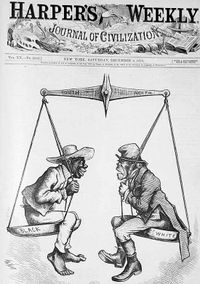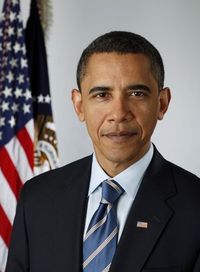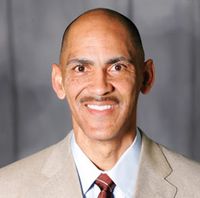Think of this as Volume 12, Number 41 of A-Clue.com, the online newsletter I've written since 1997. Enjoy.

In a Thesis of Conflict there are no limits. Spiro Agnew began the development of the Nixon Thesis under the baton of William Safire with personal invective. He belittled critics as "nattering nabobs of negativism" and the insults have only escalated from there.
This achieved its ultimate expression during the George W. Bush Administration, where 9-11 ushered in a second era of McCarthyism, an echo of hate as profound in its way as the Second Rising of the Klan during the first years of the last century.
It's important to remember that the Second Rising succeeded for a generation. It legitimized violence against blacks. It transformed the past, turning the Civil War into the Birth of a Nation. It countenanced lynching of anyone who, like Leo Frank, seemed different or even tolerant. It created Jim Crow, leaving blacks little better than serfs not just in the South, but in the North as well.
The Birth of a Nation premiered 50 years after the Civil War ended. The Bush-inspired Second Era of McCarthyism debuted 50 years after the height of the first McCarthy era, the time of the blacklist.
It's no accident.

That mistake was to tolerate it.
The tolerance of the Klan and Jim Crow was a mass phenomenon. It wasn't imposed from the top-down, but arose from the bottom-up. It was there at the heart of Populism, but it also lay in the silence of Progressives. It wasn't just the racism of Democrats that gave us Jim Crow. It was the silence of Republicans, their continual refusal to invest any political capital in the cause of black people, their meek acceptance of segregation as "the way it is."
Are we going to be like that with today's haties?
Recently, on my paid blog, ZDNet Healthcare, I have been subjected to a little taste of what everyone in the country is getting from these people. I wrote a series of reports detailing what is happening in health care reform. I was careful to report only what was known. My attitude was that this is essentially a business negotiation, between buyers and sellers of health services, the buyers having appealed to government because sellers have them over a barrel.
Each Talkback thread that followed featured a small number of right-wing trolls who attacked me as a leftist, as a socialist, as biased, who said ZDNet had no business publishing my copy. When I responded they became even more intensely personal. Each thread became a flame war.
And what I found, afterward, was that it made me very little money. Most of my most popular stories for the last month had nothing to do with politics. One story with 153 talkbacks had actually been viewed barely 1,000 times.
I had made the classic journalistic mistake of our time. I confused heat with light. I confused the intensity of the few with the beliefs of the many.
Just because a few hundred haties show up at a town meeting and call Congressman X names does not mean they represent the majority view. Just because right-wing yakkers lead the ratings in radio and on cable does not mean they represent the majority view, either.
Between the silence that enables and the confrontation that leads to violence there is a way to stop this nonsense.
It's a hard road. The road of Gandhi, of Dr. King, and of Mandela is a hard one for both leaders and their followers. You must be active enough to provoke a reaction and passive in the face of it. You must demonstrate your humanity and let the other side demonstrate its inhumanity.
You also need to be the majority.

The victory of such tactics comes slowly. There are setbacks, in the real world, and times when you do want to scream. As an ADHD person I sometimes give in to this. That's why I'm unsuited for politics.
What followers of the new consensus need to understand is that this struggle is a marathon, not a sprint. It did not end with the election of this President. It began with it. And it is a struggle that is inside all of us.
If you get angry and need an example of how to behave, look to the President. That's what he's there for. We set the limits of tolerance by defying it, not by yelling at it but by creative resistance, by active non-violence.










